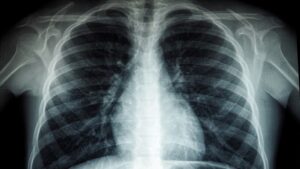[ad_1]
SchizophreniaIt is the name given to a mental disorder in which individuals interpret reality as abnormal and cannot distinguish between the real and the unreal. Schizophrenia may consist of combinations of hallucinations, delusions, highly disordered thinking and behaviors that disrupt daily functioning and can render the individual completely ineffective.
For patients with schizophrenia, lifelong treatment is necessary. Early treatment can help control symptoms before serious complications develop and make it possible to take steps to improve an individual’s long-term quality of life.
WHAT ARE THE SYMPTOMS OF schizophrenia?
Symptoms of schizophrenia differ in each patient. Illness It can start insidiously by showing faint symptoms in the period we call pre-prodrome, or it can occur suddenly. Pre-disease symptoms can often include withdrawal, withdrawal from friends and activities, decreased speech, and eccentric pursuits. The most common symptom in patients with schizophrenia who have delusions, hallucinations or erratic speech during the exacerbation of the disease is that the person does not think they are sick and has no insight. Other schizophrenia symptoms are as follows:
delusion
It is seen as persistent beliefs that are inconsistent with reality and cannot be changed by rational discussion. Patients often have paranoid delusions, as if they are being harmed from the outside, followed by business and being followed. In addition, patients may develop delusions such as “grandism”, that is, believing that the person has different characteristics or power from other people, and that what is happening around them, called “reference delusion”, is related to himself. Apart from these delusion types; “erotomanic delusions” such as thinking that someone is in love with them, “hypochondriac delusions” that they have a disease, or “bizar delusions” such as when their thoughts are stolen, withdrawn or inserted into their minds.
Hallucination (hallucination)
It is the perception that there is a stimulus when there is no certain external stimulus. Although hallucinations are mostly auditory in schizophrenia, they can be in different forms such as touching and seeing images. Auditory hallucinations are common in the form of echoes of the person’s voice, one or more voices commenting on the person, voices talking among themselves, voices saying bad things.
disorganized behavior
Behaviors that are not purposeful and that the outside observer cannot make sense of.
Thought and speech disorder
It manifests itself in the form of non-purposeful, peripheral speech.
negative symptoms
It is a decrease in speech, withdrawal, decrease in socialization and goal-directed activity and behavior, and blunting in facial expression.
Catatonic Symptoms
Not speaking (mutism) Muscle stiffness can be in the form of resistance to the outsider, repeating what is said or done, taking a posture, that is, maintaining this shape for a long time when the body is brought into a certain shape, meaningless grins and facial expressions.

HOW IS SHIZOPHRENIA DIAGNOSED?
Diagnosis of schizophrenia is usually made by patients whose problems are noticed by their relatives. psychiatry brought to clinics. Since there may be many psychiatric diseases whose symptoms are similar to schizophrenia, specialists diagnose the disease as schizophrenia with the help of schizophrenia symptoms test, examination and diagnostic tests.
Since the symptoms seen in the disease may also occur due to substance abuse, alcohol use and side effects of some drugs, it should be investigated whether the problems are caused by such a reason. Physical examination and tests, psychiatric evaluation tests, blood tests and medical imaging methods can be applied to patients to clarify the diagnosis. As a result of all these applications, the treatment process is planned for individuals who are diagnosed with schizophrenia, taking into account the severity of the disease.
WHAT ARE THE TYPES OF SCHIZOPHREIA?
According to the current classification system, subtypes of schizophrenia have been removed. However, according to the old classification system, the types of schizophrenia are as follows.
paranoid schizophrenia
It is the type in which delusions and hallucinations are at the forefront, negative symptoms such as cognitive impairment and withdrawal remain in the background and functionality is relatively preserved.
Disorganized (hebephrenic) schizophrenia
It is the type in which the organization of speech, behavior and emotions is disrupted, meaningless laughter and facial expressions may be present, daily life activities and self-care skills may be severely impaired, and disorganized fragmentary delusions or assumptions are present.
catatonic schizophrenia
It is the type that manifests itself with symptoms related to the movement system such as decrease in motor movements, extreme negativism, not speaking, on the contrary, excessive motor activity, repetition of what the other person says and movements, stiffness in the muscles, resistance to movement.
undifferentiated schizophrenia
It is the type that can show the characteristics of the three types listed above together.
residual schizophrenia
He has shown intense symptoms of schizophrenia before, but despite his recovery, it can be classified as a type that presents with withdrawal, lack of speech, or delusions and assumptions that are not very detailed. Schizorphenia is divided into Type 1 and Type 2 according to another classification system. In the condition expressed as type 1, delusions and hallucinations, which we call positive symptoms, are mostly observed. In type 2, negative symptoms such as withdrawal, decrease in speech, and decrease in self-care, which are called negative symptoms, are dominant. In general, the prognosis of Type 2 schizophrenia is worse and the treatment response of Type 1 is better.
CAN I PREVENT Schizophrenia?
Whether schizophrenia is preventable is a controversial issue. Regarding this issue, early symptoms with pre-disease symptoms in certain risk groups medicine Preventive studies such as starting and using some psychotherapy methods are mentioned.

WHO HAS SHIZOPHRENIA?
Schizophrenia is seen in 1% of the population. It is observed slightly more in men than in women. It is more common in urban areas than in rural areas. However, schizophrenia is more common in the children of those who became pregnant due to infectious diseases in the autumn months, in those with schizophrenia in their family, and in those with other brain disorders. Although the diagnosis of schizophrenia is made at any age, it is more common in adolescence and young adulthood. In addition, the frequency of new diagnoses increases in women in their mid-30s.
HOW TO TREAT Schizophrenia?
Schizophrenia is a chronic disease and requires lifelong treatment, although the symptoms are largely eliminated with the help of medications. Antipsychotic drugs form the cornerstone of treatment. These drugs are thought to relieve symptoms by acting on the neurotransmitter dopamine in the brain. The main purpose of drug therapy is to eliminate the symptoms caused by the disease and to ensure that individuals lead a life close to healthy individuals in social, psychological and physiological terms.
Another aim is to ensure that the treatment for schizophrenia is life-long, so the lowest possible medicine dose is continued. The type, dose and frequency of use of the drug can be changed when deemed necessary by following up the patient regularly by psychiatrists. Combinations can be made with antidepressant and anti-anxiety medications. It may take 3-4 weeks for the effects of such drugs to be fully seen.
The drugs used in the treatment are generally undesirable to be used by patients because they have serious side effects. At this point, considering the patient’s willingness to cooperate in the treatment, drug administration by injection may be preferred if necessary in patients who show resistance to not taking drugs. It is possible to ensure that patients lead a healthy life with the help of additional treatments such as individual therapies, family therapies, social skills training and vocational rehabilitation in addition to drug therapy.
With the right treatment and continuous follow-up, schizophrenic patients can lead a successful and productive life like normal and healthy individuals.
[ad_2]






